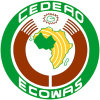
African Union InterAfrican Bureau for Animal Resources (AU-IBAR)
About
The African Union – Interafrican Bureau for Animal Resources (AU-IBAR) provides leadership in the development of animal resources for Africa. By supporting and empowering the African Union (AU) Member States and the Regional Economic Communities (RECs), AU-IBAR's vision is that of an Africa free from hunger and poverty in which animal resources make a significant contribution within the global arena.
Founded in 1951 to study the epidemiological situation and fight rinderpest in Africa, AU-IBAR's mandate covers all aspects of animal resources, including livestock, fisheries and wildlife, across the entire African continent. At the same time AU-IBAR fills a unique and strategic niche by working at the continental and regional levels, with the RECs being key partners.
AU-IBAR was founded on an important principle that guides everything we do, i.e. the principle of subsidiarity; animal resources-related activities should be undertaken at the most local level possible, with AU-IBAR assuming responsibility for those areas that national and regional bodies are unable to address, or for which AU-IBAR enjoys a clear comparative and strategic advantage.
By providing a pool of expertise that can be accessed by the RECs and AU Member States, AU-IBAR will help to avoid duplication of effort and ensure more effective resource utilization.
An important area of focus is the development and promotion of common African positions within the global animal resources arena. Meanwhile, animal resources-based trade within Africa is facilitated through harmonization of policies and regulation between AU Member States.
Being a specialised technical office of the African Union Commission (AUC), AU-IBAR enjoys unique convening power, and is a critical instrument for advocacy; it is able to bring together animal resources policies and decision-makers from the AU Member States, including at ministerial level or higher. This means it is very well placed to translate technical recommendations into national, regional and continent-wide policies and practices, and to achieve real impact on the lives and livelihoods of those who depend on Africa's animal resources.
History
Established as the Interafrican Bureau of Epizootic Diseases (IBED) in 1951 to study the epidemiological situation of and commence the fight against rinderpest in Africa, the organization today bears the name African Union – Interafrican Bureau for Animal Resources (AU-IBAR). This name-change reflects its broader mandate, which is to support and coordinate the improved utilization of animals (livestock, fisheries and wildlife) as a resource for human wellbeing in the Member States of the African Union (AU), and to contribute to economic development, particularly in rural areas. AU-IBAR's main clients are the African Union (AU) Member States and the Regional Economic Communities (RECs) to which they belong.
For more than four decades, AU-IBAR has coordinated major continent-wide efforts aimed at the eradication of rinderpest through several projects, notably the Joint Project Number 15 on Rinderpest (JP-15: 1962-1975), the Pan-African Rinderpest Campaign (PARC: 1986-1998), the African Wildlife Veterinary Project (AWVP: 1998-2000) and the Pan-African Programme for the Control of Epizootics (PACE: 1999-2007).
With its broadened mandate covering animal production (from 1970), AU-IBAR has implemented a wide range of projects, including the Pastoral Livelihoods Programme (PLP: 2000-2005), the Pastoral Livelihoods Programme HIV/AIDS (PLP HIV/AIDS: 2003-2006), the Community Animal Health and Participatory Epidemiology Project (CAPE: 2000-2004), the Regional Project for Poultry and Milk Production in East Africa Project (1999-2005), the Farming in Tsetse-Controlled Areas Project (FITCA: 1999-2004), and gthe Regional Programme on Ticks and Tick-borne Disease (RTTDC), among others.
Although outcomes have been variable, through many of these projects and programmes AU-IBAR has developed a considerable track record and gained a lot of experience as a continental body providing leadership on animal resources issues in Africa.
Vision
An Africa in which animal resources contribute significantly to the reduction of poverty and hunger.
Mission
To provide leadership in the development of animal resources for Africa through supporting and empowering AU Member States and Regional Economic Communities.
Mandate
To support and coordinate the utilization of animals (livestock, fisheries and wildlife) as a resource for human wellbeing in the Member States of the African Union and to contribute to economic development. The specific areas of the mandate are to:
- Improve public and animal health through the control and possible eradication of transboundary animal diseases and zoonoses;
- Improve the management of animal resources and the natural resource bases on which they depend;
- Explore investment options and enhance competitiveness of African animal products;
- Contribute to the development of relevant standards and regulations and enhance compliance by Member States;
- Strengthen institutional capacity and support policy development and harmonization;
- Disseminate information and knowledge on animal resources to Member States, Regional Economic Communities and other relevant institutions; and
- Provide essential support to Member States with special needs or in emergency situations.
Core Values
AU-IBAR has five core values that are central to our identity and what they aspire to be:
- they embrace and uphold the spirit of Teamwork;
- they are Transformational;
- they operate in a way that is Transparent and Accountable;
- they embrace Integrity.



Experience
Company Offices
- Kenya (headquarters)
- Nairobi
- Kenindia Business Park Museum Hill, Westlands Road P.O. Box 30786 00100, Nairobi KENYA